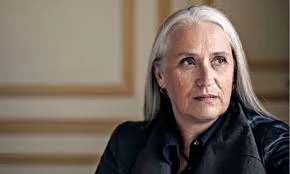Welcome to a captivating journey through the extraordinary lifestyle of Jane Campion, a visionary filmmaker whose unparalleled talent and unique perspective have left an indelible mark on the world of cinema. In this article, we delve into the fascinating life and career of Jane Campion, uncovering the secrets behind her creative process, her unique approach to storytelling, and the factors that have shaped her remarkable journey.
Early Life and Influences
Jane Campion was born on April 30, 1954, in Wellington, New Zealand, into a creative and intellectually stimulating environment. From a young age, she showed a keen interest in the arts, drawing inspiration from her surroundings and immersing herself in literature, poetry, and the visual arts. This early exposure to creativity would later form the foundation of Campion’s distinctive cinematic style, characterized by its poetic sensibility, emotional depth, and keen attention to detail.
Breaking Boundaries: Campion’s Cinematic Career
Campion’s foray into filmmaking began in the 1980s when she enrolled in the Australian Film, Television and Radio School, where she honed her craft and developed her unique voice as a filmmaker. Her early short films garnered critical acclaim for their bold storytelling and unconventional narrative techniques, paving the way for her feature film debut, “Sweetie,” in 1989.
With “Sweetie,” Campion announced herself as a bold new voice in cinema, challenging traditional gender roles and exploring themes of family dysfunction and female identity with honesty and insight. The film’s success catapulted Campion onto the international stage, earning her widespread acclaim and establishing her as one of the most exciting filmmakers of her generation.
Trailblazing Success: Campion’s Iconic Films
Throughout her career, Campion has continued to push the boundaries of storytelling, tackling a diverse range of subjects with courage and conviction. From the haunting drama of “The Piano” to the haunting mystery of “The Portrait of a Lady,” Campion’s films are united by their unflinching exploration of the human condition and their uncompromising commitment to authenticity.
In 1993, Campion made history as the first woman to receive the prestigious Palme d’Or at the Cannes Film Festival for “The Piano,” a hauntingly beautiful tale of love and sacrifice set against the backdrop of the New Zealand wilderness. The film’s success cemented Campion’s reputation as a trailblazing filmmaker and a champion of women’s voices in cinema.
Personal Life: Balancing Creativity and Family
Despite her hectic schedule and demanding career, Campion has always made time for her family and personal life. She is married to Colin David Englert, a filmmaker and cinematographer, with whom she shares three children. Campion’s commitment to her family and her unwavering dedication to her craft serve as a source of inspiration to aspiring filmmakers around the world.
In conclusion, Jane Campion’s lifestyle is a testament to the power of passion, creativity, and perseverance. Through her groundbreaking work and unwavering commitment to her craft, she has not only reshaped the landscape of cinema but also left an enduring legacy that will continue to inspire future generations of filmmakers.




